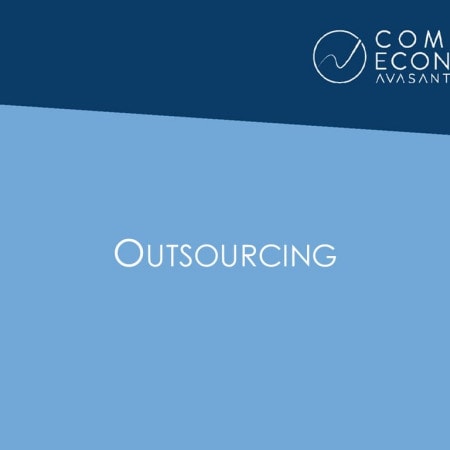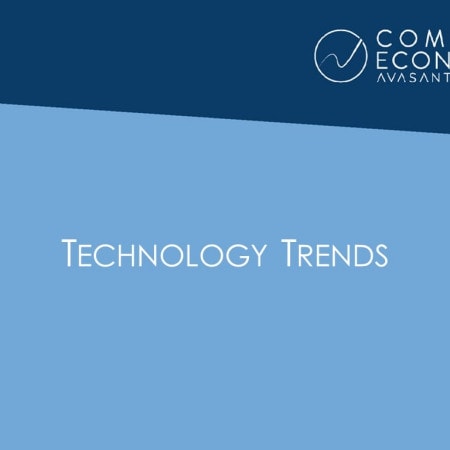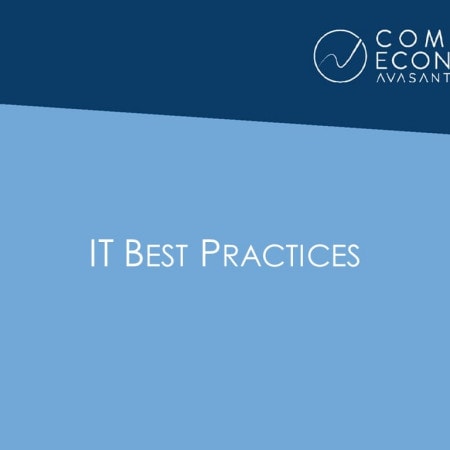-

Outsourcing Can Help Control Website Costs
Corporate websites generally provide excellent ROI, but IS managers need to better control the total cost of ownership of websites. Our research indicates that outsourcing website maintenance may be an effective strategy to control website TCO.
August, 2005
-

Outsourcing as a Strategy for Controlling Website Costs
Corporate websites have become essential for doing business in most industries. However, our latest research indicates that the total cost of maintaining websites can often exceed expectations. This article examines the factors driving website maintenance costs and the use of outsourcing as a strategy for controlling the costs of website maintenance.
August, 2005
-

Website Economic Returns Depend on Implementation
The satisfaction that Website owners receive from their investments is heavily dependent on the method selected for developing and supporting the sites. Results from the Computer Economics Information Systems Spending and Technology Trends survey provides clear indications of the methods that provide optimum economic performance and those that just increase costs. Results from this survey show that in-house support of the site often makes the difference between being a drain on organizational finances or an improved source of revenues. Click here to purchase. - $125
January, 2005
-

Build Credibility and Trust Into Your Website
The factors that encourage customers to interact frequently with a website revolve around the issues of credibility and trust. Marketers and customers are in conflict regarding the use of information. Online marketers would like to gather detailed information about their customers to be able to group them for targeted marketing and personalized offerings. Customers do appreciate personalization when it suits their needs.
August, 2003
-

E-Business: Fad or True Transformation? (2Q03)
Exactly where is e-business today? Is it just hype, or is it beginning to add true value to the organization? Are companies moving forward? Are they seeing a competitive advantage with e-business?
April, 2003
-

IT Contract and Consulting Providers Receive Mediocre Report Cards
A newly released study conducted by Computer Economics indicates that most end user organizations do not feel their contract and consulting service providers are delivering as high a quality of service as they would like.
October, 2002
-

Pop-Up Ads Knocked Back Down in Court (August 2002)
From an e-marketerâs perspective, a pop-up ad is a powerful tool, enabling a seller to command the attention of consumers in a much more aggressive manner than a traditional, static banner ad. From the consumerâs perspective, they are widely considered to be an intrusion and an annoyance. At issue in one pending lawsuit, however, is not the effectiveness of these advertisements, but the possibility that they infringe upon intellectual property rights and may interfere with the economic relationship between website owners and their users.
August, 2002
-

Predict Website Visitor Purchasing Behavior (August 2002)
Dealing with a large number of e-commerce shoppers in an efficient manner is always a challenge, so website managers can benefit from being able to reliably predict the buying probability of site visitors. Figure 1, based on eight months of Amazon.com activity, shows that website shoppers may visit a site several times, when purchases are made several items may be bought at the same time, and only 0.36 purchases are made during the average visit.
August, 2002
-

.Net Servers Begin to Appear (August 2002)
Because of the delayed shipping date, .Net servers are appearing later than originally planned by Microsoft. The late deployment was motivated by Microsoftâs determination to build in as much security protection as possible before launching the new platforms. Support from third-party tool providers and application developers is beginning to gather as Microsoft prepares to issues the .Net server series.
August, 2002
-

Why Web Businesses Fail—and Ten Ways to Avoid Failure (August 2002)
While "e-business" and the dot com era will not be looked back on as a passing summer fad, itâs no secret that there have been numerous failures for every success. A number of these failures can be attributed to the false exuberance and the updraft of anticipation of the dot com era. In hindsight, many observe that the early dot coms overestimated the speed with which the marketplace would adopt the Internet as a channel for products, services, and content.
August, 2002
-

10 Rules for Maintaining a Website (July 2002)
By nature websites are expandable and dynamic. Sites that stagnate are doomed to failure, but keeping sites fresh demands a great deal of maintenance grunt-work. Although it isnât nearly as glamorous, website maintenance is every bit as important as web design. Companies that dedicate time and resources to maintaining a superior website are the most apt to experience both hard and soft return on their investment.
July, 2002

 Grid View
Grid View List View
List View